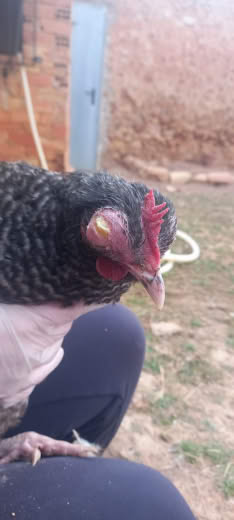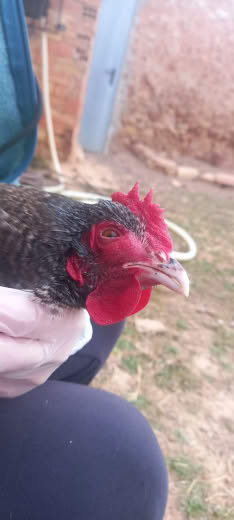Eye infection of a chicken and CDS
Eye infection of a chicken and CDS before and after with protocol D and oraly


Eye infections in chickens can be a significant concern for poultry farmers, as they can lead to various health issues within the flock. The condition can manifest in several ways, including swelling, discharge, and redness around the eye area. To properly manage an eye infection, it is essential to follow a systematic protocol that includes the use of appropriate medications, such as CDS (Chlorine Dioxide Solution), and other supportive care measures.
Before initiating treatment with CDS, it is crucial to assess the severity of the infection and ensure that the affected chicken is isolated from the rest of the flock to prevent the spread of any potential contagion. The protocol typically involves cleaning the infected eye gently with a saline solution to remove any discharge and debris. After cleaning, the application of CDS can be administered either topically or orally, depending on the severity of the infection and specific veterinary recommendations.
After the treatment with CDS is started, it is essential to monitor the chicken closely for any signs of improvement or adverse reactions. The evaluation should include checking for reduced redness, decreased discharge, and overall comfort of the bird. Continuous support through proper nutrition and hydration will also aid in the recovery process.
With diligent care and adherence to the treatment protocol, most chickens can recover from eye infections effectively, leading to a healthier flock overall. Regular monitoring and early intervention are key factors in ensuring the wellbeing of poultry in any farming operation.
